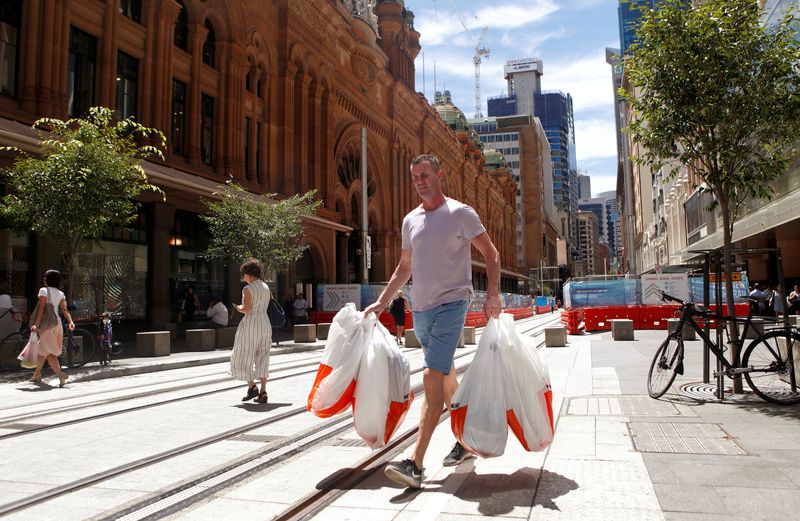By Himanshi Akhand and John Biju
(Reuters) - Australian supermarkets are set to report stronger full-year earnings as decades-high inflation propped shelf prices, but outlook on consumer behaviour with rising borrowing costs and expenses would be key, according to analysts.
Top supermarket chains Woolworths Group and Coles Group (OTC:CLEGF) are expected to post higher annual profit, according to analyst estimates, as shoppers opt against out-of-home consumption and cut costs amid spiralling living expenses.
"Our channel checks and pricing study suggest COL & WOW have been lifting shelf prices by more than the wholesale price increases they are accepting. We expect this will be reflected in higher gross margins," Jefferies analysts wrote in a note.
Coles and Woolworths sell two-thirds of Australian groceries by dollar value, and are seen as bellwethers of consumer behaviour.
"While the big supermarket chains are doing well in this era of high inflation, discretionary retailers are finding the going much tougher as consumers are forced to be more selective about their spending," said Tim Waterer, chief market analyst at KCM Trade.
Interest rates in Australia have climbed by 400 basis points since May last year and added hundreds of dollars to monthly mortgage repayments, causing a slowdown in consumer spending.
Retail sales in the country suffered their biggest fall this year in June.
For retail conglomerate Wesfarmers, analysts suggest its budget department store Kmart will continue to benefit from rising inflation, while sales at hardware chain Bunnings, which helped the company make most of its profit for years, are seen declining.
Coles, which will report its annual results on Tuesday, is expected to post net profit after tax (NPAT) of A$1.11 billion, higher that A$1.05 billion last year, according to Refinitiv data.
Full-year NPAT of Woolworths is seen rising to A$1.74 billion from A$1.51 billion, and for Wesfarmers to A$2.47 billion from A$2.35 billion last year.
Woolworths and Wesfarmers report annual results on Aug. 23 and Aug. 25, respectively.

"Given the slowing consumer, trading to start fiscal 2024 is the key area of focus, even if the second half of fiscal 2023 has been better than expected," UBS analysts wrote.
They added that rising operating costs are a headwind for retail companies, but focus will be on how these costs are managed.